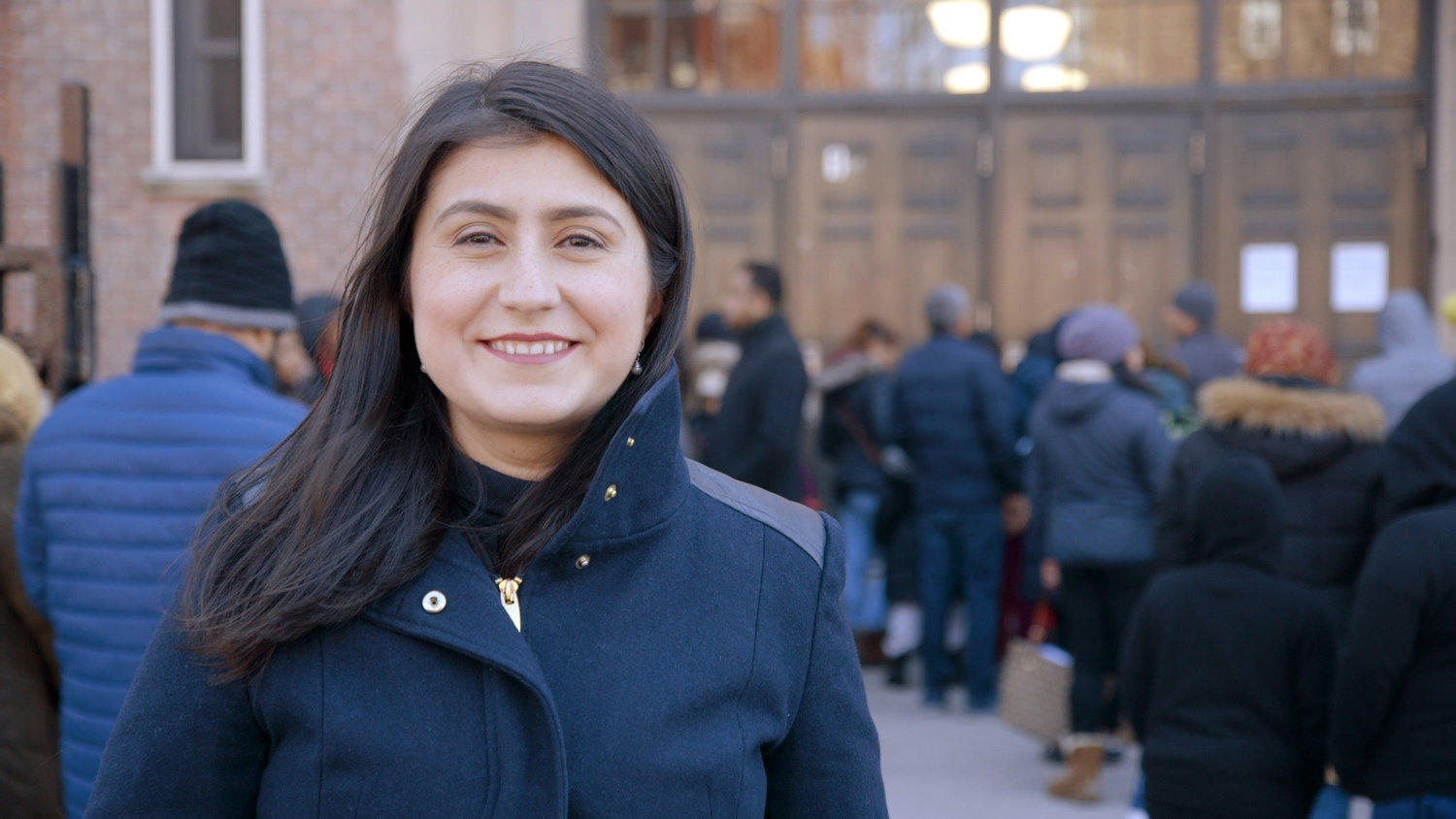New York City, Oct. 23 – Responding today to a questionnaire by the disability advocacy group RespectAbility, Jessica Ramos, who is running for New York State Senate District 13, outlined her views on education, employment and stigma for the 948,000 people with disabilities living in New York City. That includes people who are blind or deaf or have other visible conditions such as spinal cord injuries, as well as people with invisible disabilities including learning disabilities, mental health or Autism.
According to a recent survey, 74 percent of likely voters have a disability themselves or have a family member or a close friend with disabilities. The upcoming elections and their results will have an impact on people with disabilities, so it is important to become familiar with the candidates’ thoughts on certain issues.
“Candidates for office ignore the disability community at their peril,” said former U.S. Representative and Dallas Mayor Steve Bartlett. Bartlett, who was a primary author of the Americans With Disabilities Act of 1990, is the chairman of RespectAbility.
RespectAbility reached out to Ramos’ opponent, incumbent Jose Peralta, as well, but received no response, according to the organization’s President, Jennifer Laszlo Mizrahi.
RespectAbility is nonpartisan and does not endorse candidates. The questionnaire is purely for educational purposes.
The full text of RespectAbility’s questions and Ramos’ replies follows:
QUESTION 1: EDUCATION AND SKILLS: There are more than 12,938 students with disabilities enrolled in New York City’s public schools. Of that number, 9,189 are Latinx students with disabilities who face additional barriers such as language differences, inadequate resources, economic disparities and racial discrimination. What will you do to ensure that more and more students with disabilities of all backgrounds receive the skills, resources and opportunities they need to succeed?
ANSWER: The schools in my district are owed about $43 million in aid by the state. My biggest priority, once elected, is to make sure our schools get the funding they desperately need. This will allow all schools to have the adequate infrastructure and resources to help students, particularly those with disabilities, succeed.
QUESTION 2: JOBS AND INDEPENDENCE: There are 455,186 working-age people with disabilities in New York City and only 150,074 have jobs. What is your plan to support more job opportunities for people with disabilities across the NYC metropolitan area?
ANSWER: In addition to my commitment to hire a diverse staff, I will work to create more opportunities for people with disabilities. I also support A2165/S55, which increases participation of businesses owned by people with disabilities, veterans, and LGBT+ in state contracts. I also support increasing Temporary Disability Insurance so that people with short-term disabilities do not suffer financially.
QUESTION 3: DISABILITY AND GENDER: Poverty, especially in major metropolises like New York, disproportionately impact women and girls, especially those of color. In total, there are 251,089 working-age women with disabilities living in New York City. Out of that number, 111,236 New York women living with disabilities have an income below the poverty level in one of the most expensive cities in the world. Likewise, in the City, only 29 percent of working-age African American women with disabilities and 24 percent of working-age Latina women with disabilities have jobs. What can you do as an elected official to raise their voice, provide them opportunities and empower them with a better future?
ANSWER: Everyone deserves an opportunity to succeed and I am committed to working towards a future where marginalized people, particularly women of color, get an equal chance. Not only will I provide a platform for them, I will make sure they they have the tools to organize and receive the resources they need.
QUESTION 4: FIGHTING PREJUDICE: Media representation of minority communities is crucial to reducing discrimination, bias and stigma in our broad culture. What will you do to leverage the power of media/entertainment to fight stigmas and empower New Yorkers with disabilities to work in entertainment, just like anyone else?
ANSWER: As the first ever Director of Latino Media for the City of New York, I know first hand the importance of carving out a space and changing the conversation about your community. We need to make sure that all media platforms are more inclusive and have more tools for people with disabilities.
QUESTION 5: CIVIC ENGAGEMENT & EQUITY: People most directly affected by issues such as education, jobs, prejudice, homelessness, criminal justice, poverty and other issues deserves to have their voice, insights and experiences respected and utilized in finding and implementing solutions. People with disabilities are disproportionally impacted by these issues. As a public official, what will you do to ensure that New Yorkers with disabilities have “a seat at the table” for all major issues and can be part of solutions so that they and all others can have a better future?
ANSWER: When elected and inaugurated, I will be announcing a community-based policy plan that is going to be informed by people in the community who have, for the most part, been previously ignored by our elected. We’ve already begun creating an accessible space so that the community can come together and discuss the intersections of topics such as housing, public schools, transportation, etc. and making sure that we look at these topics through a different lens (this includes through a lens of people with disabilities). This is the first, but it won’t be our last our community engagement event to make sure that all people have a seat at our table.

Be First to Comment